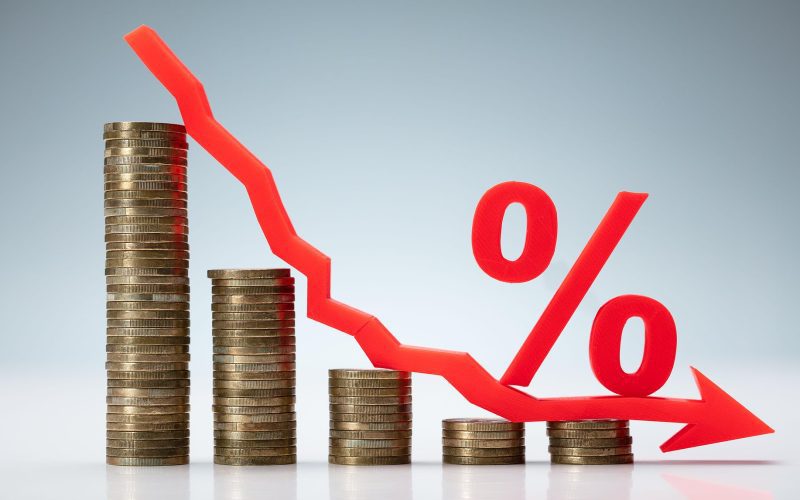In a move to alleviate Argentina’s economic woes, the International Monetary Fund (IMF) has approved a substantial loan of $800 million. This development comes at a crucial juncture for the South American nation, which has been grappling with a long-standing debt crisis exacerbated by the COVID-19 pandemic. As Argentina seeks to navigate its economic challenges, the approval of this loan marks a significant step in its ongoing efforts to stabilize its economy and regain investor confidence.
IMF Loan Approval: A Boost for Argentina’s Economy

The approval of the $800 million loan by the IMF signals a vote of confidence in Argentina’s commitment to implementing necessary reforms and addressing its economic vulnerabilities. This financial assistance is intended to support Argentina’s efforts in stabilizing its currency, reducing inflation, and fostering sustainable economic growth. The IMF’s decision underscores the importance of international cooperation in addressing global economic challenges and promoting stability in emerging markets.
Analysis of Argentina’s Economic Situation
Argentina’s economy has been beset by a myriad of challenges, including high inflation, volatile currency fluctuations, and mounting debt obligations. The COVID-19 pandemic further exacerbated these issues, leading to a contraction in economic activity and exacerbating social inequalities. In response to these challenges, the Argentine government has implemented various measures aimed at stabilizing the economy, including fiscal reforms, debt restructuring, and monetary policy adjustments. However, the road to recovery remains fraught with obstacles, and the IMF loan serves as a critical lifeline for Argentina as it seeks to implement structural reforms and restore macroeconomic stability.
Potential Challenges and Risks
While the IMF loan provides much-needed financial support, it also comes with conditions that may pose challenges for Argentina. Implementing structural reforms, such as reducing government spending and increasing tax revenue, could encounter resistance from various stakeholders, including labor unions and political factions. Moreover, the conditions attached to the loan may exacerbate social inequalities and deepen the economic hardships faced by vulnerable populations. Additionally, there is a risk that the IMF loan may only provide a temporary reprieve without addressing the underlying structural issues that have plagued Argentina’s economy for decades.
The Road Ahead: Navigating Uncertainty
As Argentina embarks on its journey towards economic recovery, it faces a daunting array of uncertainties and challenges. The success of its reform efforts will hinge on its ability to strike a delicate balance between fiscal discipline and social equity, while also navigating the complexities of a rapidly evolving global economic landscape. Furthermore, the outcome of Milei’s proposed New Deal remains uncertain, with proponents and detractors alike questioning its feasibility and potential consequences. In this context, Argentina must remain vigilant, adaptable, and open to exploring innovative solutions to its economic woes, lest it risk falling into a cycle of perpetual instability and uncertainty.
Milei’s Proposed New Deal: A Shift in Economic Policy
Amidst Argentina’s economic turmoil, economist Javier Milei has emerged as a prominent voice advocating for a radical overhaul of the country’s economic policies. Milei’s proposed “New Deal” aims to break away from conventional economic orthodoxy and embrace a more laissez-faire approach to governance. Central to Milei’s vision is a commitment to reducing government intervention in the economy, slashing public spending, and promoting free-market principles. While Milei’s ideas have garnered significant attention, they have also sparked debate and controversy within Argentina’s political and economic circles.
Comparative Analysis: IMF Loan vs. Milei’s New Deal
| Aspect | IMF Loan | Milei’s New Deal |
|---|---|---|
| Objective | Stabilize economy, reduce inflation | Promote free-market principles, reduce state intervention |
| Funding Terms | Loan with conditions attached | Advocates for fiscal austerity and deregulation |
| Policy Implications | Emphasis on structural reforms | Advocates for a radical shift in economic policy |
| Political Considerations | Cooperation with international institutions | Challenges conventional economic orthodoxy |
| Social Impact | Aimed at fostering economic stability | Controversial, potential for social upheaval |
Conclusion
The approval of the IMF loan represents a significant milestone in Argentina’s quest for economic stability. However, challenges persist, and the success of Argentina’s recovery efforts will depend on its ability to implement effective reforms and navigate the complexities of the global economic landscape. Meanwhile, Milei’s proposed New Deal offers a provocative alternative to conventional economic wisdom, raising important questions about the role of the state in shaping economic policy and the balance between market forces and government intervention. As Argentina charts its path forward, it must carefully weigh the merits of these competing visions and forge a sustainable strategy for long-term prosperity.












